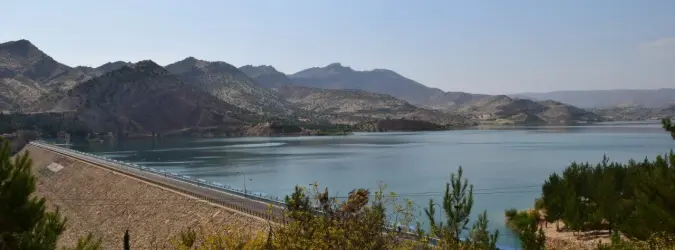The course programme involves two regular parts:
- main language courses (daily, two or three 90-minute sessions, starting 9:30 daily)
- electives (from a variety of topics, offered in afternoon sessions)
In addition, we offer a range of evening activities, including conversation opportunities with local native speakers; details to be announced soon.
Main language courses
Each student will opt for one of the following four options, which will be pursued over the 2 weeks of the autumn school. Students may be awarded ECTS for successful completion of these courses (i.e. they may be recognized for degree courses in Germany and elsewhere).
Option 1: Kurmanji 1 (Baydaa Mustafa, Geoffrey Haig, and T.B.A.)
Kurmanji, or Northern Kurdish, is spoken by the Kurds of Turkey, Syria, and the bordering regions of Iran and Iraq. This course is an intensive beginner's level course, which will take the Roman-alphabet-based standard written language as a main focus, but will also pay due attention to regional variation, and to developing active oral skills in the language. Teaching is through a mix of experienced native speakers, and non-native experts on the language. Language of instruction will be mixed English/Kurdish. No previous experience is required for this course. Students with no or little knowledge of the language, or the speakers of other Kurdish varieties, should select Kurmanji I. For those requiring credit points, an exam will be held at the end of the course.
Option 2: Kurmanji 2 (Ergin Öpengin, Michael Chyet, and Geoffrey Haig)
This course is designed for those who are already familiar with the basic structures of Kurmanji (basic conversational skills, ability to read simple texts, grammatical knowledge of Ezafe construction, case and gender, past-tense constructions). Students will learn more complex structures and extend their vocabularies through a variety of texts, gradually working towards more advanced literary and prose texts, and will also touch on Kurmanji written in other scripts (Arabic and Cyrillic), as well as accessing film and other audio-visual material. Teaching will be predominantly in Kurdish. This course could also be appropriate for native speakers who may not have been able to acquire literacy skills in their language.
Option 3: Sorani 1 (Jaffer Sheyholislami, Michael Chyet, and Ergin Öpengin)
Sorani, or Central Kurdish, is spoken by the Kurds of Iran and Iraq. This course is an intensive beginner's level course, which will take the Perso-Arabic-based alphabet standard written language as a main focus, but will also pay due attention to regional variation, and to developing active oral skills in the language. Teaching will be through a variety of methods (communicative, TPR, task based, etc.) delivered by both experienced native speakers and non-native experts on the language. Language of instruction will be mixed English/Kurdish. Transliteration in the Kurdish Roman-based alphabet will be used to assist beginners with reading Sorani texts. No previous experience is required for this course. Students with no or little knowledge of the language, or the speakers of other Kurdish varieties, should select Sorani I. For those requiring credit points, an exam will be held at the end of the course.
Option 4: Sorani 2 (Jaffer Sheyholislami, Parvin Mahmoudveysi, and T.B.A.)
This course is designed for those who are already familiar with the basic structures of Sorani (basic conversational skills, ability to read simple texts, grammatical knowledge of Ezafe construction, case, voice, and past-tense constructions). Students will learn more complex structures and extend their vocabularies through a variety of texts, gradually working towards more advanced literary and prose texts, and as well as accessing film and other audio-visual material. Teaching will be predominantly in Kurdish. This course could also be appropriate for native speakers who may not have acquired literacy skills in their language.
Electives
Electives are held in the afternoon slot (16:30–18:00). Some may span several days, depending on the topic, availability of instructors, and other factors. While it is in theory possible to attend multiple electives over the course of the autumn school, collisions in timing need to be taken into account.
The courses that are currently under consideration are listed in the following; please note that final decisions have yet to be made.
- Hawrami language course (Parvin Mahmoudveysi, offered in Week 2)
- Close reading of Kurmanji literary and academic texts (Ergin Öpengin)
- The theory of clitics, with special reference to Kurdish (Ergin Öpengin)
- Close reading of Sorani literary and academic texts (Jaffer Sheyholislami)
- Comparative approaches to Kurmanji morphosyntax (Geoffrey Haig)
- Ezidi textual tradition / literary Kurdish in Armenia (Khanna Usoyan)
Contact
Please direct inquiries concerning the autumn school to:
klas.aspra(at)uni-bamberg.de

